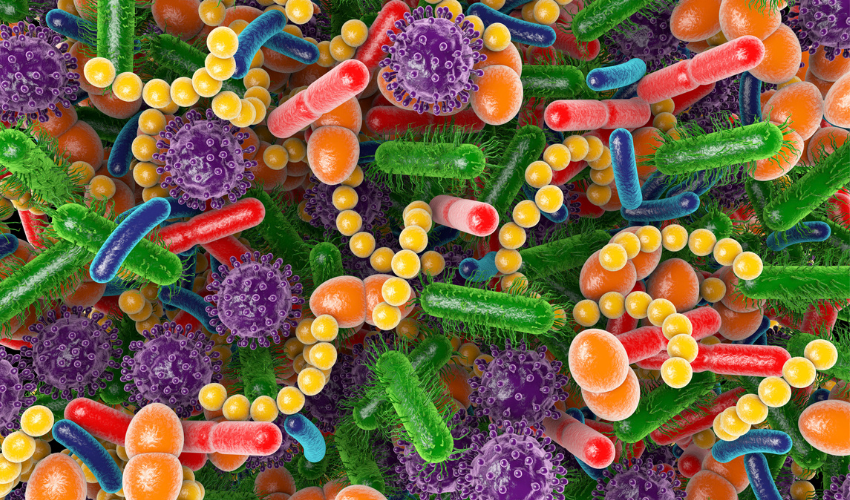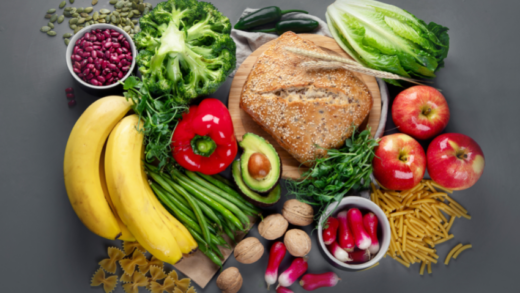The gut microbiome is made up of trillions of microorganisms, including bacteria, viruses, and fungi, that live in our digestive tract. These microorganisms play a crucial role in our overall health and wellbeing, from supporting our immune system to regulating our mood. However, an imbalance in our gut microbiome can lead to a range of health issues, including digestive problems, autoimmune disorders, and mental health conditions. Fortunately, there are many things we can do to support a healthy gut microbiome. In this article, we’ll explore 8 tips on what supports a healthy gut microbiome, from the foods we eat to our lifestyle habits.
What supports a healthy gut microbiome?

- Eat a diverse range of plant-based foods
A diet rich in a variety of plant-based foods, such as fruits, vegetables, legumes, and whole grains, can promote a diverse gut microbiome. This diversity is crucial for a healthy gut microbiome, as different types of bacteria perform different functions in the body. Aim to consume at least 5 servings of fruits and vegetables per day to support a healthy gut microbiome.
- Consume fermented foods
Fermented foods, such as kefir, yogurt, sauerkraut, and kimchi, are rich in beneficial bacteria that can colonize our gut and support a healthy microbiome. These foods are also rich in prebiotics, which act as food for our gut bacteria.
- Avoid processed and sugary foods
Processed and sugary foods can lead to an imbalance in our gut microbiome by promoting the growth of harmful bacteria. These foods can also lead to inflammation in the body, which can damage our gut lining and lead to leaky gut syndrome.
- Reduce stress
Chronic stress can lead to an imbalance in our gut microbiome by reducing the diversity and abundance of our gut bacteria. To reduce stress, try incorporating mindfulness practices, such as meditation or yoga, into your daily routine.
- Get enough sleep
Sleep is crucial for gut health, as it allows our gut bacteria to repair and regenerate. Aim for 7-8 hours of sleep per night to support a healthy gut microbiome.
- Exercise regularly
Regular exercise can promote a healthy gut microbiome by increasing the diversity and abundance of our gut bacteria. Aim for at least 30 minutes of moderate exercise per day, such as brisk walking or cycling.
- Avoid antibiotics unless necessary
Antibiotics can disrupt our gut microbiome by killing off both harmful and beneficial bacteria. If antibiotics are necessary, be sure to take a probiotic supplement or consume fermented foods to replenish your gut bacteria.
- Stay hydrated
Drinking enough water is crucial for a healthy gut microbiome, as it helps to flush out toxins and waste products. Aim for at least 8 glasses of water per day to support a healthy gut microbiome.

FAQs:
Can probiotics support a healthy gut microbiome?
Yes, probiotics are beneficial bacteria that can support a healthy gut microbiome. Probiotic supplements and fermented foods, such as yogurt and kefir, are good sources of probiotics.
What are prebiotics?
Prebiotics are non-digestible fibers found in certain plant-based foods, such as bananas, onions, and garlic, that act as food for our gut bacteria. Consuming prebiotics can promote the growth of beneficial bacteria in our gut.
Can stress affect our gut health?
Yes, chronic stress can lead to an imbalance in our gut microbiome by reducing the diversity and abundance of our gut bacteria. Stress can also increase inflammation in the body, which can damage our gut lining and lead to leaky gut syndrome. Therefore, managing stress levels is crucial for maintaining a healthy gut microbiome.
Are all bacteria in our gut harmful?
No, our gut is home to both harmful and beneficial bacteria. Beneficial bacteria help us digest food, produce vitamins, and support our immune system. Harmful bacteria, on the other hand, can cause illness and inflammation in the body. Maintaining a balance between the two is important for a healthy gut microbiome.
Can antibiotics disrupt our gut microbiome?
Yes, antibiotics can disrupt our gut microbiome by killing off both harmful and beneficial bacteria. This can lead to an imbalance in our gut microbiome and increase the risk of digestive issues and other health problems. It’s important to only take antibiotics when necessary and to take steps to replenish our gut bacteria afterwards.
Conclusion
A healthy gut microbiome is crucial for overall health and wellbeing. By eating a diverse range of plant-based foods, consuming fermented foods, reducing stress, and maintaining a healthy lifestyle, we can support a healthy gut microbiome. Avoiding processed and sugary foods, reducing antibiotic use, and staying hydrated can also contribute to a healthy gut microbiome. By following these tips, we can promote a diverse and balanced gut microbiome and support our overall health and wellbeing.






















